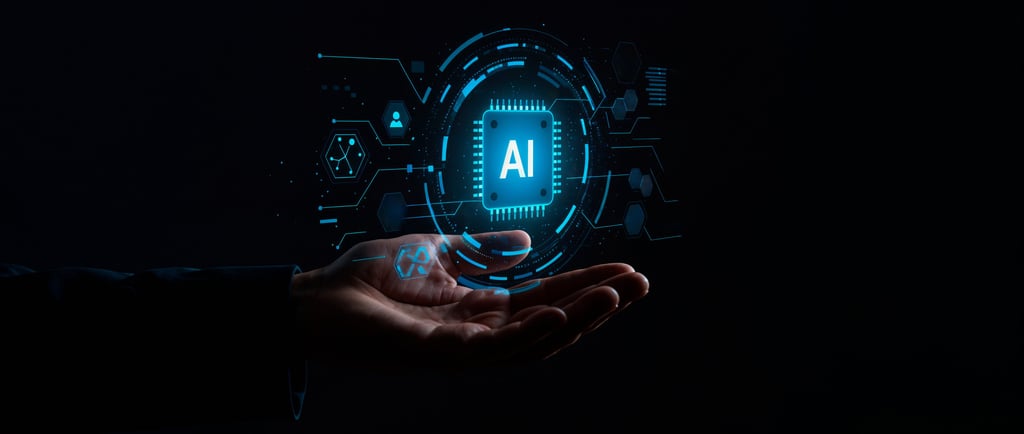AI and Peer Review
Artificial intelligence can replace peer review, transform peer review, and change the future of scientific journals.
Greguy Looban
9/13/20252 min read


Will AIs End Peer Review?
Introduction
In recent years, artificial intelligence (AI) has shifted from being a supportive tool to taking a central role in science. From grammar-checking software to platforms that evaluate methodological consistency, a bold question now arises: Can AI replace peer review in scientific journals?
This question alarms editors, reviewers, and researchers alike, since it touches not only on publication quality but also the future of academic jobs. In this article, we’ll explore how AI is impacting the peer review system, whether certain roles may disappear, and how AI might transform the well-known “early view” process.
Why Peer Review Matters
Peer review is the process where experts evaluate a scientific article before publication. It acts as a quality filter, ensuring that studies are based on solid methodology, reliable data, and well-founded conclusions.
Without this filter, the risk of predatory journals or flawed research being published would grow drastically.
How AI Is Already Used in Scientific Publishing
AI is already embedded in editorial workflows:
Plagiarism detection: Tools like Turnitin and iThenticate identify copied content.
Language correction: Grammarly and Paperpal polish grammar and style.
Reference checking: Algorithms standardize citations (APA, ABNT, Vancouver).
Image and data forensics: AIs detect manipulation in figures and datasets.
AI has become the first filter, saving time for human reviewers.
Can AI Replace Human Reviewers?
This is the big controversy. AI can:
Scan thousands of articles in seconds for data consistency.
Flag statistical anomalies using machine learning.
Detect methodological flaws through pattern recognition.
But peer review also involves interpretation and ethics:
Is the study truly original?
Is the topic relevant for the field?
Are conflicts of interest properly disclosed?
These questions still demand human judgment.
Which Jobs Might Disappear?
If AI takes over part of the review process, some roles may decline:
Ad hoc reviewers may be needed less often.
Assistant editors may lose repetitive tasks.
English language reviewers could be replaced by multilingual AI.
However, new positions may emerge:
AI editorial curators, responsible for training algorithms.
Audit reviewers, checking if the machine missed errors.
So rather than extinction, we may see a radical transformation of roles.
The Future of “Early View” with AI
The early view model publishes articles online before final peer review. AI could accelerate this trend:
Articles published within hours, after AI triage.
Post-publication peer review, with open comments from the scientific community.
Faster access but higher risk of flawed studies circulating.
Will Peer Review Disappear?
Unlikely. Peer review will evolve:
Faster, with AI handling technical checks.
More open, with collaborative comments after publication.
Cheaper, as editorial costs decrease.
It won’t end, but it will become hybrid—machines plus humans.
Conclusion
So, will AI end peer review? Probably not. But it will reshape it forever.
What once took months may now take hours. Human reviewers will not vanish but must adapt as critical supervisors of machines.
The real question is not whether AI can review science, but whether the scientific community is ready to trust AI as a gatekeeper of knowledge.
👉 Do you think AI will make peer review fairer and more efficient, or open the door to invisible errors?
📢 Gostou do conteúdo?
Deixei sua opinião 👉👉
FAQ
1. Will peer review disappear?
No, but it will become hybrid, with AI filtering and humans supervising.
2. Does AI already review articles?
Yes, but mainly for plagiarism, grammar, and statistical errors.
3. Could reviewers lose jobs?
Some tasks may vanish, but new AI-related roles will appear.
4. What changes in early view with AI?
Faster publication, but more reliance on post-publication comments.
5. Is AI reliable in science?
It helps detect technical issues but cannot replace human judgment on originality and relevance.
Contato
contato@horadepublicar.com.br
Endereço
Boa Vista - Roraima


© Hora de Publicar | 2025 | - Todos os direitos reservados